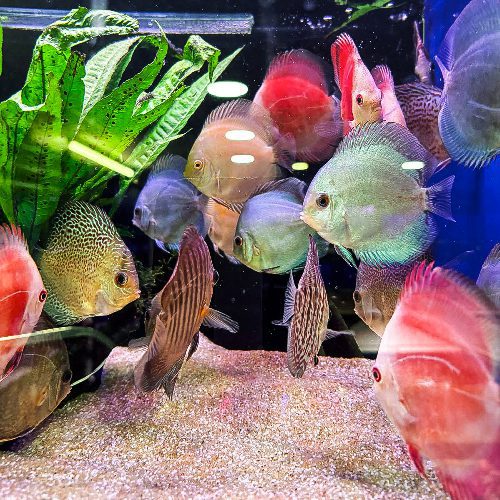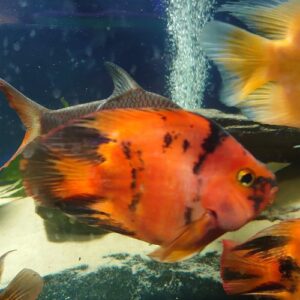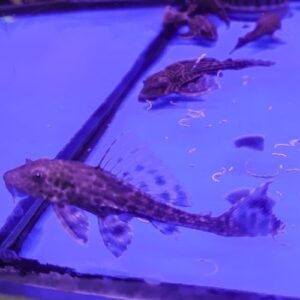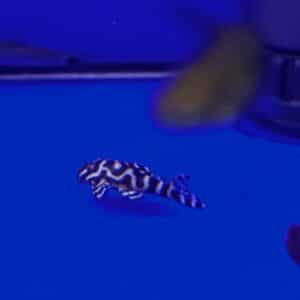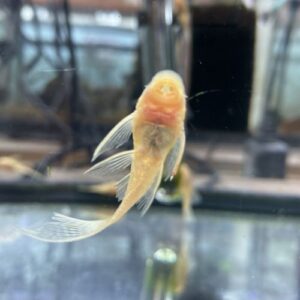Assorted Discus
Price range: £61.99 through £110.00
Description
Common and Latin Name: Assorted Discus (Symphysodon sp.)
Care Level: Difficult
Maximum Size: 15cm+
Temperature: 27-30C
PH: 6.0 – 6.5
Temperament: Specialist Community
Approximate Purchase Size: 7cm
Discus are one of the most desirable and awe inspiring tropical fish in the hobby. These laterally compressed cichlids are guaranteed showstoppers, but they are also a responsibility like no other. Whilst there are a lot of myths surrounding discus care and many differing opinions, often contradicting each other, there’s also a lot that is plain fact.
Discus require a very large tank with soft, acidic water and gentle flow. Though more recently bred European specimens are often kept in neutral conditions. The temperature needs to be very high for discus, making it difficult to keep them alongside anything else. Water quality must be excellent as these fish are really sensitive to pollutants, including nitrate. They are also very sensitive to heavy metals found in our tap water, so RO Many discus keepers opt for daily partial water changes to ensure that water quality is maintained consistently. Lighting should be subdued as this nervous species gets stressed out under strong lighting.
They are a shoaling species, so ideally you should start off with a shoal of 5 or 6 fish as they tend to become more stressed and skittish in smaller numbers. This is turn can lead to health problems in the long run. Tank mates should be chosen very carefully. They will develop their own hierarchy in time. The tankmates should be able to tolerate the higher temperatures, small and peaceful, but not small enough to be eaten by an adult discus. Several species of tetra, some corydoras, apistogrammas and rams are a great choice. Avoid anything particularly boisterous or nocturnal as it will stress the discus out.
These fish can be tricky to feed. They need a varied diet, but can be slow to respond to food. Beef heart is an important part of their diet, but granular food should also be offered to ensure that they get a range of nutrients. Adding vitamin supplements can help a great deal as well. Feeding should take place several times a day as these fish prefer to eat smaller amounts, but more often.
If you have any questions about this snail and whether it’s suitable for your aquarium, please contact us and a member of our friendly tropical team will be more than happy to answer all of your questions.
Why not check out our Instagram for the latest news on our products and livestock!
Additional information
| Multibuy | 2 For, Each |
|---|---|
| Brands | Shirley Aquatics |
You may also like…
-
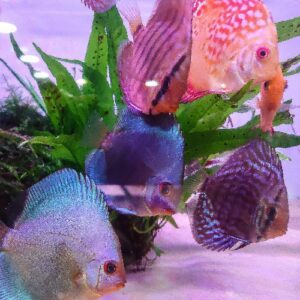
Stendker Discus
Price range: £59.99 through £150.00 Select options This product has multiple variants. The options may be chosen on the product page



